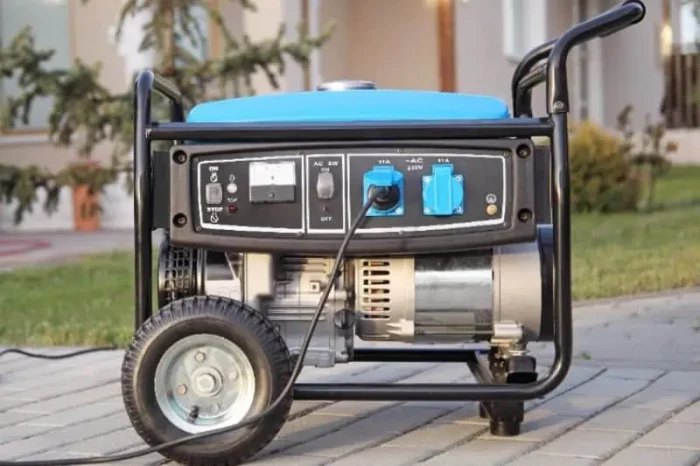Grounding a generator is a critical safety measure that ensures proper operation and protects both the equipment and users from electrical hazards. Understanding whether and how to ground your generator can help prevent accidents, enhance performance, and comply with safety regulations. This article explores the importance of grounding generators, the various methods of grounding, and best practices to ensure safety and efficiency.
Understanding Generator Grounding
1. What is Grounding?
Grounding refers to the process of connecting electrical equipment to the earth or a conductive body that serves as a reference point for voltage. This connection helps to dissipate excess electrical charge, reducing the risk of electric shock and equipment damage.
2. Why is Grounding Important?
Grounding is essential for several reasons:
Safety: Proper grounding minimizes the risk of electric shock and protects users from potential hazards.
Equipment Protection: Grounding helps prevent damage to generators and connected devices by providing a path for excess current during faults.
Regulatory Compliance: Many local and national electrical codes require proper grounding for generators and electrical installations.
Types of Generators and Their Grounding Requirements
1. Portable Generators
Portable generators are commonly used for temporary power supply in various applications, from camping to construction sites. Grounding requirements for portable generators can vary based on the model and usage.
Grounding Portable Generators
Bonding: Portable generators often have a grounding terminal. If the generator is used in a permanent installation, it should be grounded according to local electrical codes.
GFCI Protection: Many portable generators are equipped with Ground Fault Circuit Interrupters (GFCIs) that provide additional safety by shutting off power in case of a ground fault.
2. Standby Generators
Standby generators are permanently installed and provide backup power during outages. These generators typically have specific grounding requirements.
Grounding Standby Generators
Direct Grounding: Standby generators should be grounded to a grounding electrode system, such as a ground rod, as per the National Electrical Code (NEC).
Neutral Bonding: In many cases, the neutral should be bonded to the ground at the generator, ensuring a low-resistance path for fault currents.
3. Inverter Generators
Inverter generators are designed for sensitive electronics and provide clean power. Grounding for inverter generators may vary based on the application.
Grounding Inverter Generators
Floating Ground: Many inverter generators have a floating ground, meaning they do not require a direct ground connection when used with properly grounded appliances.
Check Manufacturer Guidelines: Always refer to the manufacturer’s guidelines for grounding instructions, as these can differ significantly from other types of generators.
How to Properly Ground a Generator
1. Determine Grounding Requirements
Before grounding your generator, determine the type of generator and its specific grounding requirements. Refer to the manufacturer’s manual and local electrical codes for guidance.
2. Use Appropriate Grounding Equipment
Select the right grounding equipment to ensure a safe and effective ground connection:
Ground Rod: Use a copper or galvanized steel ground rod that meets local code requirements.
Ground Wire: A copper wire, typically sized between 6 AWG and 10 AWG, should connect the generator to the ground rod.
3. Install the Grounding System
Follow these steps to install a grounding system:
Drive the Ground Rod: Install the ground rod vertically into the ground, ensuring it is at least 8 feet deep or according to local codes.
Connect the Ground Wire: Attach one end of the ground wire to the grounding terminal on the generator and the other end to the ground rod using a grounding clamp.
Verify Connections: Ensure all connections are secure and free of corrosion.
4. Test the Grounding System
Regularly test the grounding system to ensure it is functioning correctly. Use a multimeter to check the resistance of the grounding connection. A resistance of 25 ohms or less is typically recommended.
Common Grounding Mistakes to Avoid
1. Neglecting Grounding Requirements
Failing to ground a generator properly can lead to serious safety hazards. Always adhere to local codes and manufacturer recommendations.
2. Using Inadequate Grounding Equipment
Using substandard or improperly sized grounding materials can compromise the effectiveness of your grounding system. Always use high-quality materials that meet regulatory standards.
3. Ignoring Regular Maintenance
Neglecting to inspect and maintain grounding connections can lead to corrosion and poor conductivity. Regularly check your grounding system and clean any corroded connections.
Grounding in Various Applications
1. Residential Use
For residential applications, proper grounding of standby generators is essential for safety. Ensure compliance with local codes and consult a licensed electrician if needed.
2. Commercial Use
In commercial settings, grounding requirements may be more stringent. Follow industry standards and ensure all equipment is properly grounded to avoid liabilities and safety issues.
3. Recreational Use
When using portable generators for recreational purposes, be cautious about grounding, especially in wet conditions. Utilize GFCI outlets and avoid using generators in enclosed spaces.
Conclusion
Grounding a generator is a crucial aspect of safe and effective operation. Whether you are using a portable, standby, or inverter generator, understanding the grounding requirements can help protect both users and equipment. By following proper grounding practices, regularly maintaining your grounding system, and adhering to local regulations, you can ensure the safe and efficient use of your generator for years to come. Prioritize grounding as a vital component of your generator setup to enhance safety and performance.
Related topics:

